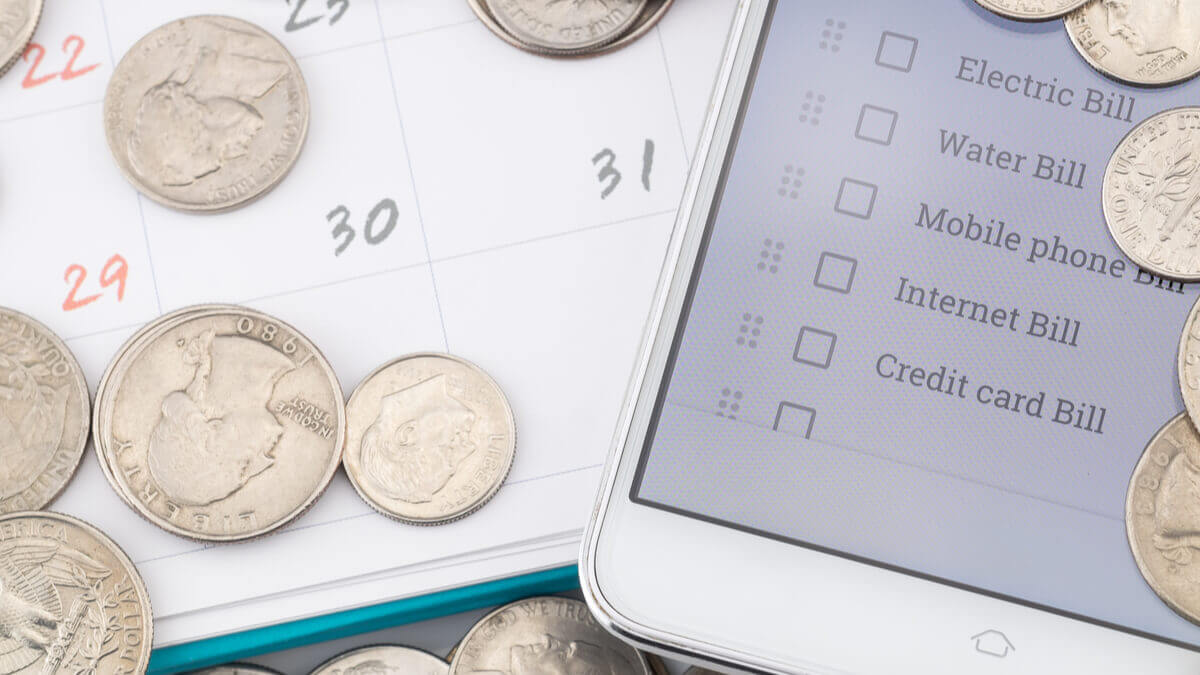How to open a bank account in Costa Rica as a foreigner: US guide
Learn all about opening a bank account in Costa Rica as an American, including costs, requirements, and alternatives.

Direct debits, which you may also see called ACH debits or bank debits, are a simple and easy way to arrange recurring payments.
Set up a direct debit to pay your mortgage, regular bills for utilities, or even for your subscriptions, and you’ll know your money will always be paid on time directly from your bank account to the recipient.
Direct debit payments can be made within the United States or internationally - just make sure there’s money in your account, so the automatic payments can be processed on schedule.
Need to send regular payments overseas? You should know about the 6x cheaper Wise account, which you can use to set up direct debits well. Plus, as Wise uses the real exchange rate for currency conversion every time, you could avoid hefty markup fees, no matter where in the world you’re sending money. More on that later.
Let’s take a quick look at how paying by direct debit works. For example, here are the basic steps you’d have to take if you were planning to use direct debit to pay your mortgage¹:
- Ask your mortgage provider to set direct debit as your payment method
- Complete a direct debit mandate to authorize the mortgage provider to collect regular payments
- The mortgage provider notifies your bank every month of the amount to be paid and the due date
- Your payment is posted automatically and processed through the Automated Clearing House
- Your mortgage is paid, and you don’t need to take any further action
A direct debit authorizes an organization to collect payments according to your agreed schedule. To make direct debit transactions you’ll first complete a direct debit mandate or ACH form - this can often be done online. In the mandate, you’ll give permission to your chosen organization to collect a regular payment on the due date.
You don’t have to do anything else to make sure your transfer goes ahead - making this the ideal payment method for those transfers you need to make every month, like your Netflix subscription or your rent.

Direct debit payments can be made in the US and a range of other countries. They’re intended for regular payments which you’ll make at set intervals, even if the amount might vary from one payment to the next. That makes direct debit transfers a good choice for:
- Paying your rent, mortgage or utility bills
- Subscriptions
- Credit card bills and installment payments
- Supplier invoices
- Business payments like retainers
Setting up direct debit payments should be relatively simple, but there are a few important factors to know:
- Your direct debit payments will only start after you have given authorization to an organization to collect money from your bank account
- The organization should inform you in advance of changes to the amount or date of payment collection
- You’ll still need to review your account statements to make sure payments are being processed as you expect - and can complain and get a refund in the case of payment errors
Using direct debits can come with several benefits. Here are a few examples:
- Use direct debit payments for more or less any regular payment
- One off direct debit payments are also possible
- Use direct debit payments for both fixed and variable payment amounts
- No need to remember to pay a bill every month, or pay to mail in checks
- Because direct debit payments are cheap to process, businesses may offer discounts for customers paying in this way

Both standing orders and direct debits are ways of sanding payments automatically. However, there are some important differences between standing orders and direct debit payments.
Here’s an overview:
| Direct Debit | Standing order | |
|---|---|---|
| What is it? | A direct debit authorizes an organization to collect a payment directly from your bank account The organization is in control of the payment amount and frequency | A standing order authorizes your bank to make a payment to an organization directly from your bank account The customer is in control of the payment amount and frequency |
| What can you use it for? | Regular payments of both fixed and variable amounts | Regular payments of a fixed amount |
| How to set one up? | Complete the organization’s direct debit mandate, which authorizes it to work with your bank to collect payment as per your agreement Your guide to setting up direct debits, here | Set up through your own bank - this is usually possible using online banking |
Direct debits are not the same as debit card payments. A direct debit is set up on a recurring basis and will happen automatically. If you want to pay a bill using your direct debit card, you’ll probably have to key in the card information every time you choose to make a payment.

Direct debits are the perfect solution to making regular payments. You just set it and forget about it.
You can use direct debit payments in many countries - making it easier to pay your mortgage or utility bills on an overseas property, send regular transfers to international contractors, or remit money to friends and family abroad. And with Wise you’ll always get the real mid-market exchange rate when you’re sending money internationally - which means you can save 6x when you send money online with Wise direct debits, compared to using your regular bank.
Open a free Wise account online to set up direct debit payments and save on your transfers, no matter where in the world you’re sending money.
*Please see terms of use and product availability for your region or visit Wise fees and pricing for the most up to date pricing and fee information.
This publication is provided for general information purposes and does not constitute legal, tax or other professional advice from Wise Payments Limited or its subsidiaries and its affiliates, and it is not intended as a substitute for obtaining advice from a financial advisor or any other professional.
We make no representations, warranties or guarantees, whether expressed or implied, that the content in the publication is accurate, complete or up to date.

Learn all about opening a bank account in Costa Rica as an American, including costs, requirements, and alternatives.

Learn all about opening a bank account in Monaco as an American, including costs, requirements, and alternatives.

Need to close Fidelity bank account? Our guide covers requirements, fees, steps, timelines, and best practices to avoid errors and protect your money.

Need to close Capital One bank account? Our guide covers requirements, fees, steps, timelines, and best practices to avoid errors and protect your money.

Need to close Santander bank account? Our guide covers requirements, fees, steps, timelines, and best practices to avoid errors and protect your money.

Need to close PNC Bank account? Our guide covers requirements, fees, steps, timelines, and best practices to avoid errors and protect your money.